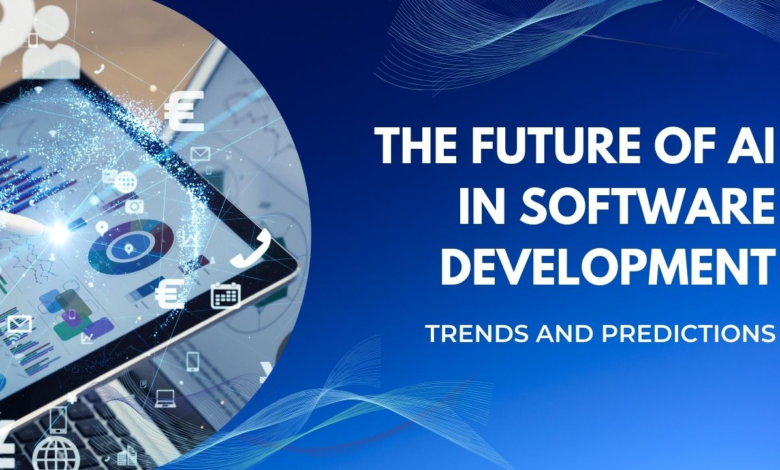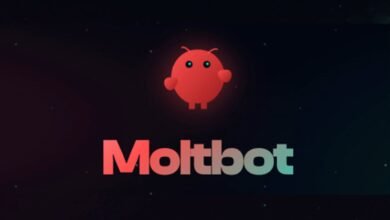Quick Reads
[Quick Read] The Future of Code with AI: Predictions and Trends

This article is part of the ‘AI in the Code Realm’ quick reads series, exploring how AI is reshaping the landscape of software development.
Projections for AI Integration in Software Development by 2030
- Ubiquitous AI Assistance: By 2030, it’s envisioned that AI coding assistants will be as standard in development environments as version control systems are today. They will be seamlessly integrated into every step of the development lifecycle, from ideation to deployment.
- AI-Driven Codebases: Entire projects might be managed by AI with human oversight, where AI not only writes but also maintains, updates, and optimizes code. This could lead to self-healing software where AI proactively addresses issues before they become critical.
- AI in Legacy System Modernization: AI will play a pivotal role in the modernization of legacy systems, automatically translating old code into modern languages or frameworks while preserving functionality, thereby extending the life of critical systems.
Emerging Trends: Customization, Cross-Disciplinary AI Assistance, and Beyond Coding
- Customization: AI tools will become highly customizable, allowing developers to train or fine-tune models for specific project needs, coding styles, or even individual preferences. This might include AI assistants that learn from a company’s codebase to maintain consistency or adapt to unique business logic.
- Cross-Disciplinary AI: AI will not just assist in coding but will bridge gaps between different fields. For example, an AI could help a developer understand the biological implications of software for medical applications or suggest optimizations in code based on recent advancements in quantum computing.
- Beyond Coding: AI will expand its role into areas like project management, where it could predict project timelines, allocate resources, or even assist in UX/UI design by suggesting layouts based on user behavior data.
- AI for Non-Developers: Tools will evolve to allow non-coders to create applications through natural language descriptions or visual programming, democratizing software development further.
Potential New AI Tools or Features We Might See in the Next Decade
- Predictive Coding: AI that can predict what developers might need next, not just in terms of code but also in documentation, testing, or even suggesting new features based on market trends or user feedback.
- AI Code Reviewers: Advanced AI systems that don’t just check for syntax or style but also evaluate code for potential future scalability issues, performance bottlenecks, or security vulnerabilities, offering proactive rather than reactive solutions.
- Real-Time Collaborative AI: AI that not only assists individual developers but enhances team collaboration by suggesting optimizations across the entire codebase, facilitating real-time code pair programming, or even mediating coding style discussions.
- Ethical AI Decision-Making: Tools that help developers navigate ethical dilemmas in coding, suggesting alternatives that align with ethical, legal, or cultural considerations specific to the project’s context.
- AI for Code Synthesis: Merging multiple pieces of existing code or even from different languages to create new functionalities or solve complex problems, essentially acting as a code chef that remixes and matches code to innovate.
- Voice-Activated Development: Coding through voice commands where AI interprets natural language to write, edit, or debug code, making development more accessible for those with disabilities or for hands-free coding scenarios.
- AI-Driven Continuous Learning: AI assistants that not only learn from their environment but also from global trends and community feedback, updating their knowledge base in real-time to offer the most current solutions or techniques.
Challenges and Considerations
- Ethics and Bias: As AI becomes more integral, ensuring that it does not amplify biases or ethical issues will be paramount. Continuous monitoring and ethical training of AI will be necessary.
- Job Evolution: While AI might not take jobs away, it will undoubtedly change them, pushing developers towards roles that require more oversight, creativity, and strategic thinking.
- Security and Privacy: The more AI integrates into coding, the more critical security becomes. Ensuring AI does not become a vector for attack or data leakage will be crucial.
- Data Dependency: The effectiveness of AI in coding will heavily rely on data – the quality, diversity, and ethical sourcing of this data will be key to preventing skewed or harmful outcomes.
- Regulation and Standards: As AI in coding advances, there will be a need for new regulations or standards to guide its use, ensuring fairness, transparency, and accountability in AI-assisted software development.
The future where AI and human developers work hand-in-hand is on the horizon, promising a world where software development is faster, more creative, and more aligned with human needs and ethical standards. However, navigating this future will require careful consideration of the implications, ensuring that as AI becomes a cornerstone of coding, it does so in a way that benefits all of humanity.
Quick Read Series: “AI in the Code Realm”
- The Rise of AI Code Assistants: From Automation to Collaboration
- Meet Claude: The Code Whisperer
- The Silicon Giants Respond: AI Strategies of OpenAI, Google, Microsoft, and Meta
- Grok by xAI: More Than Just Code
- The Developer’s New Best Friend: How AI Enhances Coding
- Ethical AI and Coding: Navigating the Future
- The Future of Code with AI: Predictions and Trends
- Competition or Collaboration? The AI Tool Ecosystem
- Hands-On with AI Coding Tools: Practical Tips and Tricks
- Conclusion: The Coder’s New World
Topics
AI Integration in Software Development by 2030
100%
AI Integration in Software Development
100%
Ubiquitous AI Assistance
90%
AI-Driven Codebases
90%
Future of AI and Human Collaboration
90%
Customization of AI Tools
80%
AI in Legacy System Modernization
80%
Ethics and Bias in AI
80%
Job Evolution due to AI
80%
Security and Privacy in AI
80%

